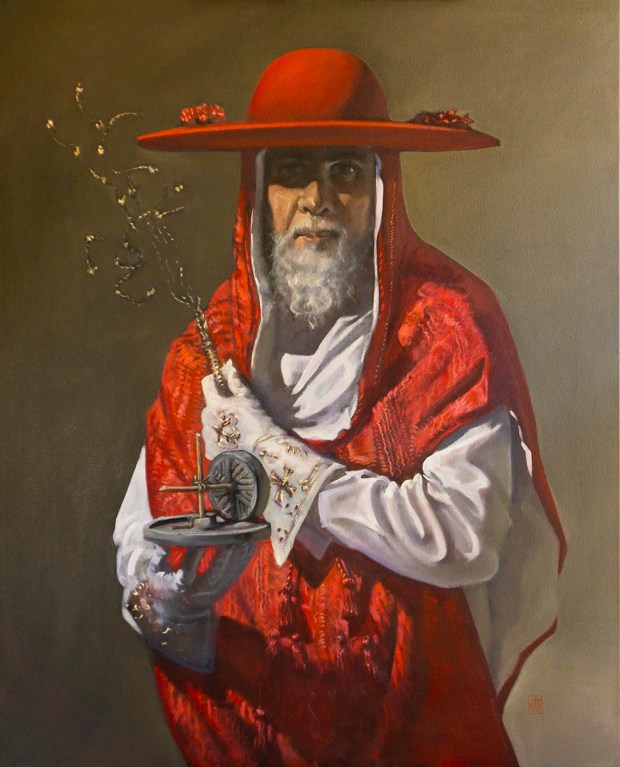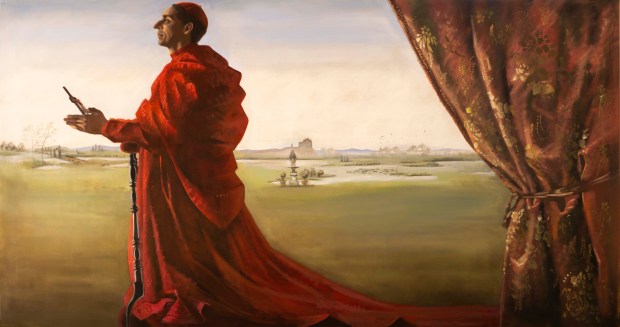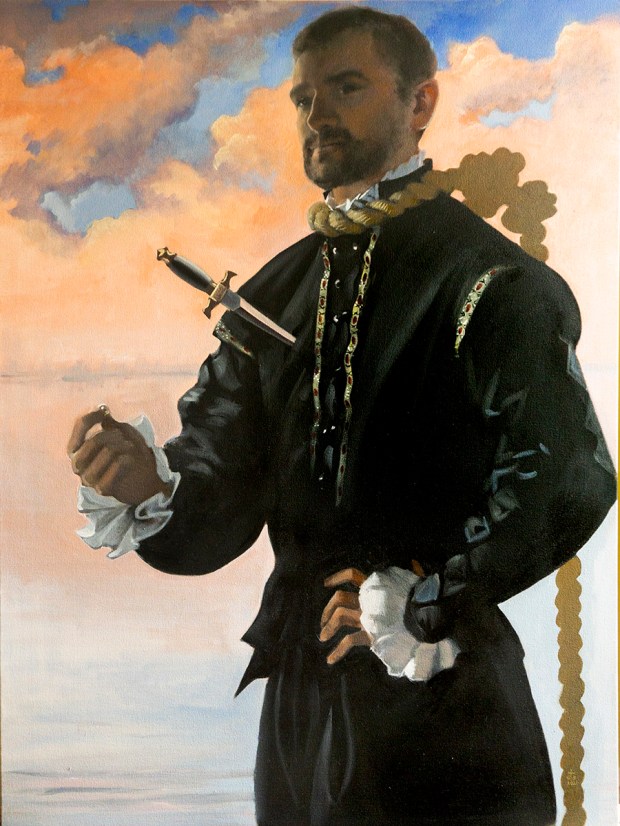In south St. Louis, in the shadow of the dizzyingly tall bell tower of the oratory of St. Francis de Sales, there's a makeshift art studio set up in an abandoned classroom of the old school building. The studio is lit by the northern sun -- the best kind of sunlight for making art – through a wall of wonderful industrial windows that every old elementary school seems to have.
In the studio, drawings that serve as preliminary studies are scattered around, a beat-up out-of-tune grand piano has paintings leaning against it, and a row of canvases in progress are tacked to the walls. The paintings are shaping up to be a host of angels. Eventually, these angels will find a home on the walls of a Catholic parish in Indiana where, day and night, they will linger over the altar in devotion.
My two teen daughters recently became apprentices here. A few afternoons each week, they walk through our urban neighborhood to the studio, which is run by artist Gwyneth Thompson-Briggs. She's teaching the girls how to stretch canvases and prepare a surface for oil paints, as well as the intricacies of blocking in form and shadow.

The other day, my 13-year old explained to me in great detail the value of putting a protective finish on the completed paintings. It turns out, not only does it protect the painting from disintegrating, but it also provides luminosity. It makes the painting glow in the sunlight.
At first, my daughters were hesitant about working in an unknown environment with an artist they'd never met. It was a bold new step for them. I told them they had to at least try it out, and once they went that first time, they immediately became enthusiastic about returning.
Gwyneth Thompson-Briggs is a parishioner at the oratory, where she attends Mass with her husband and growing family of extremely well-dressed children. She is slight in stature, kind, and soft-spoken. My girls love her. When she starts talking on a topic she's passionate about, it's mesmerizing. Her eyes glimmer as she speaks in an encouraging, almost prophetic manner about beauty and art. She wants everyone to be surrounded by beauty. It's not only for museums, but for our churches, our homes, our lives.

“Beauty calls the soul to God,” she says, “The soul is like a small plant in a glass greenhouse. The shafts of light that enter this greenhouse are those experiences of beauty that God uses to call us forth to grow in grace.”
Beauty is an experience we all deserve. This, however, doesn't mean living a beautiful life is easy.
I invited Gwyneth to speak to our parish's theology pub that we host for young adults, and she enchanted about 100 young adults by explaining that embracing beauty is like picking up a cross. It isn't easy, but it's worth it.

She explains, “It is really astonishing how many things we miss out on because we are afraid of being a little chilly, a little sleep-deprived, a little hungry, catching a cold, or being deprived of our daily routine and its comforts.”
It's a daunting task. It's difficult to know where to begin, but Gwyneth has practical suggestions:
Her encouragement is simple: “Consider your own gifts and cultivate them the very best that you can – even at a great sacrifice of time and money.”

When I think about my own life, my halting attempts to dress more nicely, cook better quality food, decorate our home with beautiful objects, and make my parish Masses exquisitely beautiful, I feel the sacrifice. Many times I have held back.
However, I don't want to miss out on all the most rewarding experiences because I was too tired or hesitant to make the effort. Climbing a mountain to watch the sunset is worth it. Turning off social media to meet with a friend in person is worth it. Spending the extra resources on the music program at Church is worth it. For my daughters, taking the risk to go work in an art studio was worth it. In my experience, any time I've consented to pick up a cross of beauty and carry it, the sacrifice has expanded my love and brought great joy.
Gwyneth told one, final story to our young adults,
Whatever loving sacrifices of beauty we make, whatever we have to give, it has value beyond comprehension.



